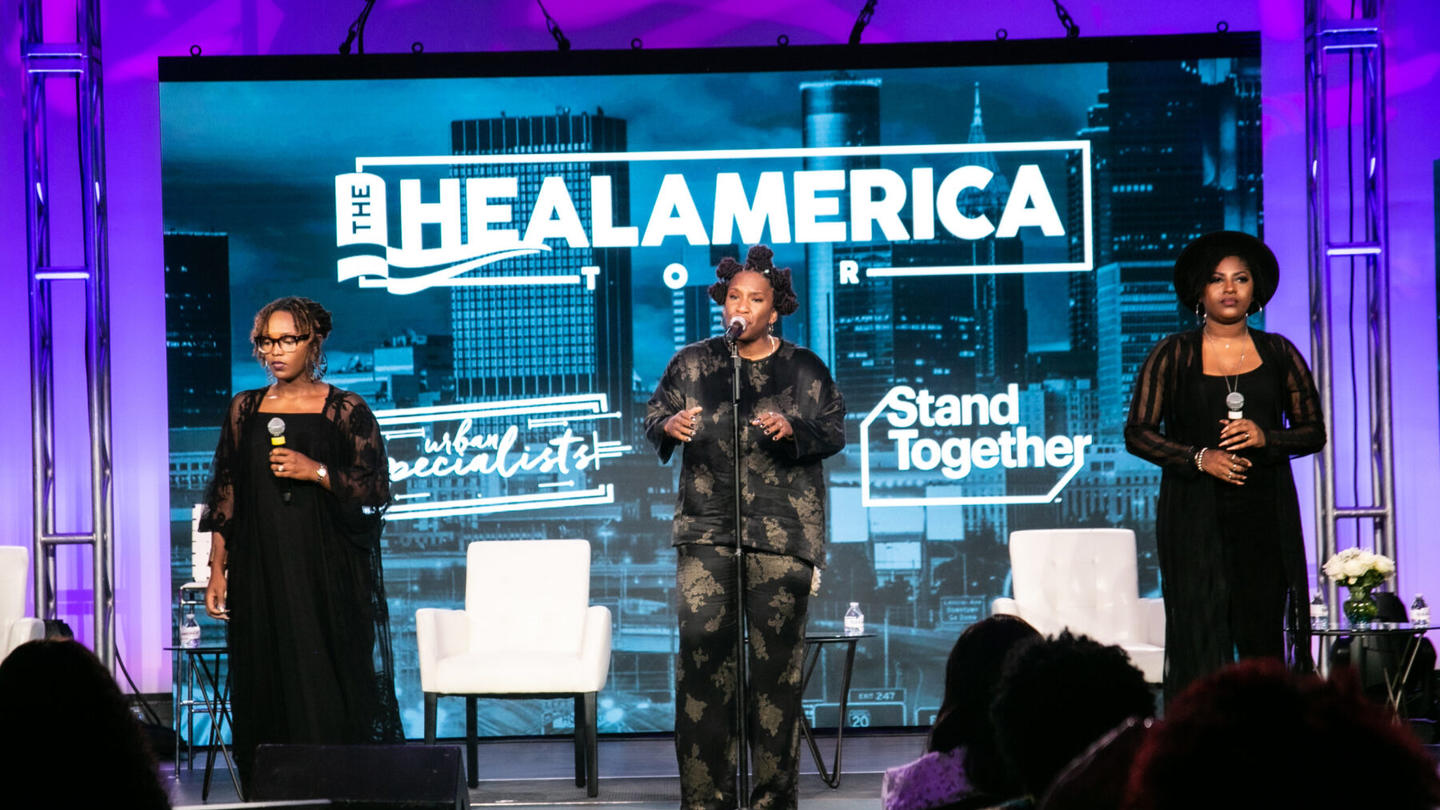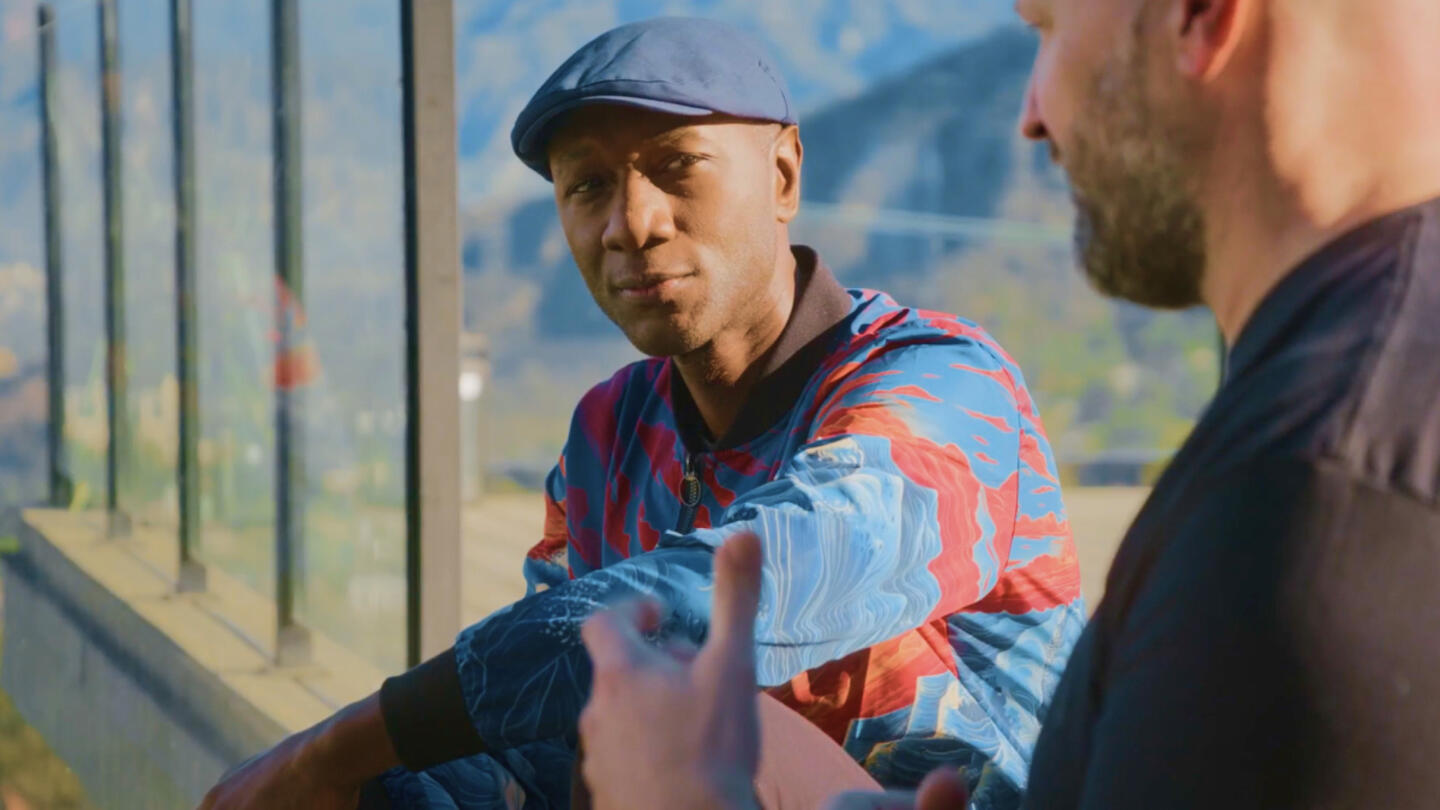"Where do we go from here? How do we maneuver through these turbulent times?"
That was the question from Bishop Omar Jahwar, CEO and founder of Urban Specialists, to a diverse group of religious leaders, social entrepreneurs, community organizers, musicians, criminal justice reform advocates, and even a police officer at an event in Atlanta on August 26. The event, called Heal America, was hosted by Stand Together and Urban Specialists to bridge divides and drive solutions to eliminate injustice by transforming policing policy. Atlanta was the fifth stop on the Heal America tour, which has included events in Dallas, Detroit, and Minneapolis.
T.I., the rapper, producer, and entrepreneur, began with the pressing need for economic development and sustainability in many vulnerable communities across the country. He suggested that more Americans should make themselves aware of the needs of these communities to advance the conversation on combatting generational poverty.
"I believe that is a large portion of our issues," he said.
The group continued with a discussion of police brutality and the killings of George Floyd, Breonna Taylor, and many others. Leon Ford, who was paralyzed eight years ago when a police officer shot him five times during a traffic stop, spoke with Ryan Tillman, a police officer from Los Angeles and founder of Breaking Barriers United, on what Americans could do to improve policing for the most vulnerable communities.
To heal as a nation, we need to embrace difficult discussions and foster conversations between people with diverse backgrounds and experiences. We need to put ourselves in each other's shoes.
WWE star Titus O'Neil said, "I think one of the reasons that America is in the position that it's in today is because nobody really wants to talk truth."
The criminal justice reform advocate Alice Marie Johnson and the rappers Akbar V and Amir Muhadith discussed the divide between minority communities and the law enforcement agencies sworn to protect them.
Amir said that much of the success of their efforts, including the push to reform America's broken criminal justice system, has been due to the critical collaborations between the activists on stage that night. He noted that formerly incarcerated individual Weldon Angelos, Senior Vice President of Stand Together Mark Holden, and Alice Marie Johnson were instrumental in advocating for his clemency.
"I'd not even met her," said Amir, speaking of Alice, who was released from prison in June 2018 after serving 21 years on a life sentence for a non-violent drug offense. "This woman just came home. She's a grandmother, she's a mother. She could just sit down somewhere and enjoy her life!" he said.
"When I got out, finally, I knew from the moment I'd been released that I wanted to be a part of these people and their efforts advocating for change," Amir said.
Mark Holden, criminal justice reform advocate Doug Deason, and Weldon Angelos discussed how federal reform would create opportunities for countless Americans who suffered from overly tough-on-crime policies and allow them to seek productive and rewarding reentry into their communities.
Mark Holden added that the war on drugs — on marijuana, in particular — carries a heavy human cost.
"It's really crazy that it's still a felony at the federal level," Mark said, noting that people are still arrested for low-level offenses, even though many states are moving to legalize and decriminalize possession of marijuana.
The Atlanta event was a pivotal stop on Heal America's national tour to address inequities and disenfranchisement of race, citizenship, and humanity in the United States. Join us online on September 30 for the live stream of the Heal America event in Chicago.
Learn more about Stand Together's efforts to build strong and safe communities.




